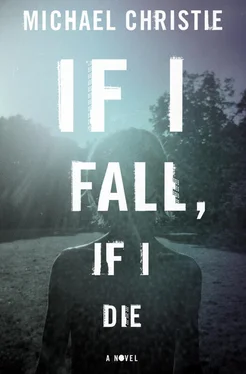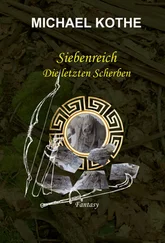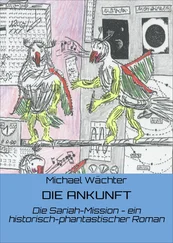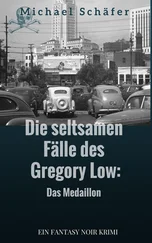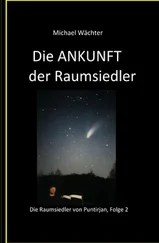She might have questions, but he was drowning in them. Questions like how Charlie really died, and where Marcus was hiding, and what the Butler’s wolves would do to him when they finally picked up his scent. Maybe she didn’t write the note. Maybe she hadn’t been wearing the boots. But at least now he had proof. Proof of what, Will couldn’t exactly say. But their investigation must be on the right track.
He and Jonah had somebody worried. Somebody other than his mother, for once.
It had been a reckless mistake to spout her life history into this reel-to-reel and to watch her anxiety-stricken films and go tromping around willy-nilly in her past with such abandon. Something had come unstuck — some psychic retaining wall, if there were such a thing. After Will had shown her that note he’d found (had he made it himself to scare her?), her memory became impossible to corral, turning again and again toward the past like a crippled airliner spiraling to the ground.
Before the images overwhelmed her, Diane removed her goggles and found she had been struck blind. Panic clamped her chest. She ground her fists into her eyes but still they failed her. It wasn’t until she saw some sunlight leaking from behind her thick bedroom curtain that she knew the lightbulb had died. She fished around in her drawer for a flashlight and snapped it on.
Will had claimed that note was a prank, but why would he have accused her of writing it with such outrage? And there was something more troublesome about it. Turmoil . Such a strange word to choose. The kind of overwrought word Charlie would copy down from his dictionary to use after their great escape from Thunder Bay. Also, the printing itself had reminded her of the cryptic instructions Whalen would slip into the vents of her locker to schedule their secret meetings.
She went downstairs and found that Will had left. She made tea and took up her guitar to calm herself, but it lay dead in her arms. No matter how hard she tried, she couldn’t sustain any fingerpicking pattern for more than a few bars, so she put it down.
The house had seen better days: plants choking of thirst in their pots, underwear she’d washed in the tub dangling from the pothanger in the kitchen to dry. With most of the lightbulbs on the main floor out, too, and no Will around to change them, she’d been moving lamps from room to room, plugging them in with dish gloves on. The house had assumed the particular disheveled sadness she’d always associated with closed amusement parks.
This house. What would Arthur think of it? Unremarkable , she could already hear him say. Though she never told him, she hated architecture. Of course she didn’t hate buildings — how could you, especially if you’re a shut-in — it was more that she hated the everywhereness of architecture. That, like a labyrinth, it could never be escaped. That she must sleep and eat and raise her child within it. The very definition of oppressive.
Diane took a nectarine from the fruit bowl and began paring it with a knife, lifting the wedges of fruit from its edge with her lips. Then she realized the dangerousness of what she was doing and locked the knife in the drawer. She pulled back her elastic and snapped it soundly, the pain only further agitating her.
Who was she kidding? She’d never make it to that retrospective. She couldn’t even sit in the dark alone for a while without terrifying herself. They’d have to find another caged curiosity to trot out. She walked to the kitchen counter and crumpled the NFB director’s letter and dropped it in the trash. She would’ve burned it had the thought of fire not caught her breath and set her hands tingling.
She returned to her bedroom with a new table lamp but couldn’t yet dare to plug it in, even with her dish gloves on. She couldn’t risk another panic. She got under the covers and read by flashlight — as she had all those nights as a girl — and silently decreed her five pageturner limit hereby null and void. If the Relaxation Sessions had stopped working, these silly books were the only barricade left between her and ruin.
But after she’d read her eyes dry and sore, and her mind dipped toward sleep, a memory knifed up from the past: the bang that had lifted her from this same bed long ago. An apocalyptic sound she later learned was heard as far as fifty miles outside Thunder Bay. Diane took her father’s old truck, her bare feet on the rough pedals, over the tracks and down to the harbor. Men arrived in coats over their nightclothes, leading her to the loading bay, where an overturned railcar had dropped to its side, a thick support cable lying sheared and slack near a good quantity of spilled oil — she hadn’t known it was blood until she saw the way the others avoided it. A search of the area was conducted, men with naphtha lanterns slicing the dark, projecting the shadows of giants onto the towering concrete of Pool 6. After a few hours, in the very same water from which they’d pulled Theodore years previous, one of the men spotted something that belonged more to the lake than to the land. The men had no idea how it got there, with wounds too mortal to carry itself. She helped them drag twine nets through the harbor throughout the night, but her brother was never recovered in his entirety. Though Charlie and Whalen were the same size, had the same haircuts, and had worn the same canvas coveralls, and though the body was shredded by the frayed cable’s whip, the face a ruin, it was the terrible confirmation of Charlie’s fate — the expectedness of it — that convinced her that night of exactly who she’d lost. She knew her brother never would abandon her to the world if he could help it — a loyalty she never would’ve expected from Whalen.
Yet what drove her panic today wasn’t that her brother had died at the elevators, just as her father did, or that her mother died a young woman. It was that anyone did. Anywhere. That tragedy made no distinction. That it claimed equally those who invited it and those who didn’t. Those treasured, and those ignored. That there was no protection, no spell. It knew every face. Every address. That doom, as Emily Dickinson wrote, was a house without a door.
She knew she was supposed to be optimistic, was expected to hope, that hope was a mother’s great gift, and that she was betraying Will’s bright future if she could not accomplish this most basic self-deception. But what she felt was the opposite of hope. It was only a matter of time before he would break his little bones. Before he would become drunk, diseased, delirious, deranged, and one day — whether she was around to see it or not — he would become like Charlie: only parts of himself, undone.
If only there were some way to teach him that everything is lethal. That injury, sickness, calamity, death — these things follow us like a white moon whipping in the trees beside the highway. And that it is more insane to forget this, even for a second, than it is to remember.
That night in New York, Will shot up in his cot, his heart kicking like a bronco.
Grain dust.
It had been a week since he’d confronted his mother with the dusty boots and she’d said his grandfather and uncle were always covered with it from working at the elevator. It must’ve been what the Wheezing Man had left on Will’s coat after he grabbed him.
“I can’t believe we were so stupid,” Will said to a drowsy Jonah after he’d phoned and had Enoch rouse him from bed. “Everything points to the elevators. The boots. The dust. Plus the creek runs from where Marcus went missing right down the hill and empties into the lake exactly where the elevators are. The Butler must be using the creek to get around the city undetected.”
Читать дальше
